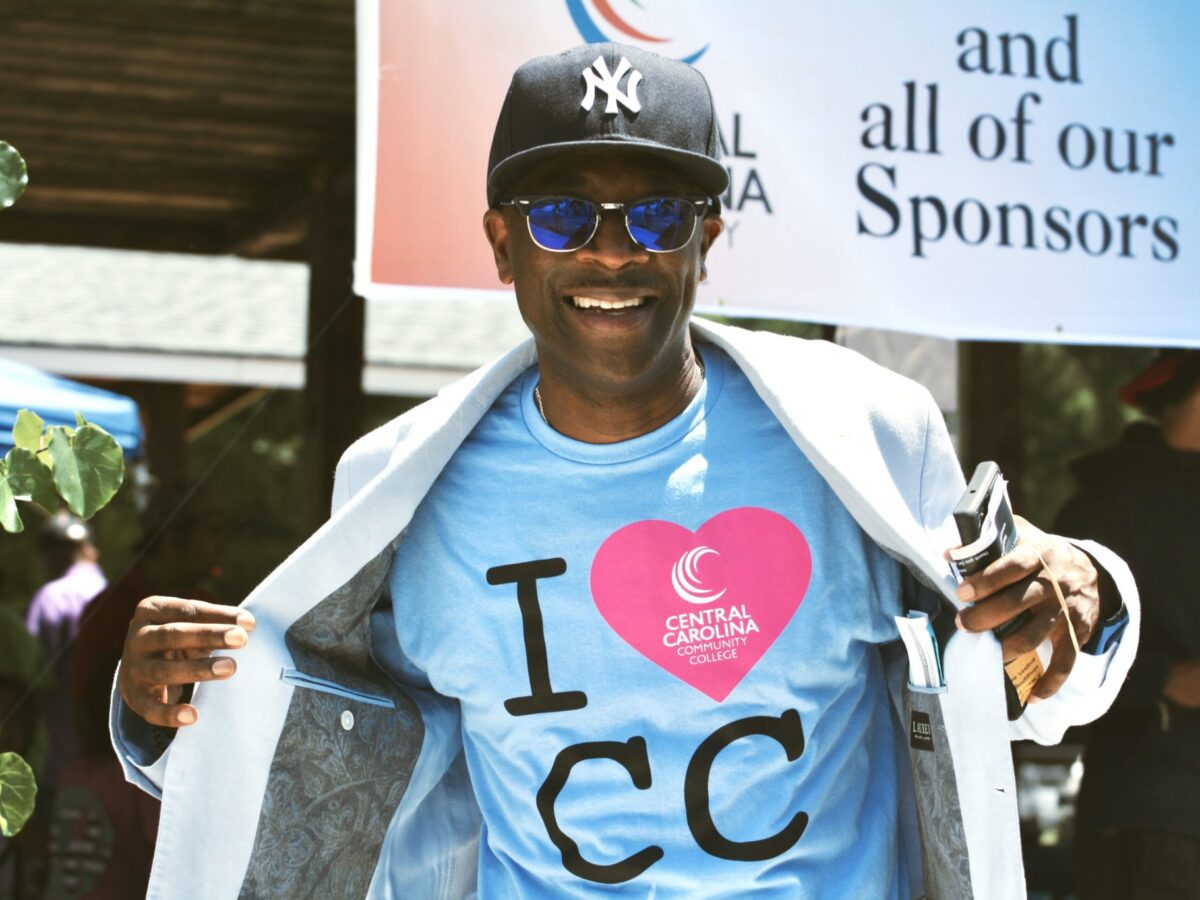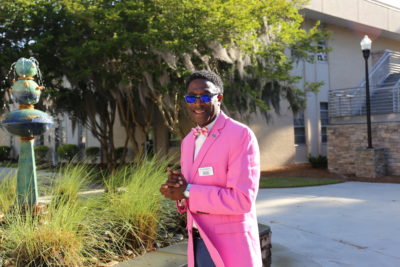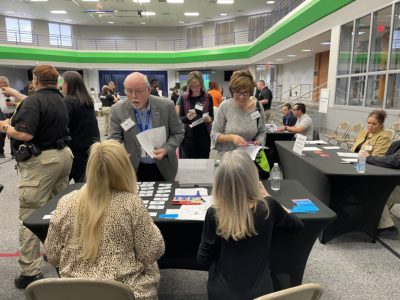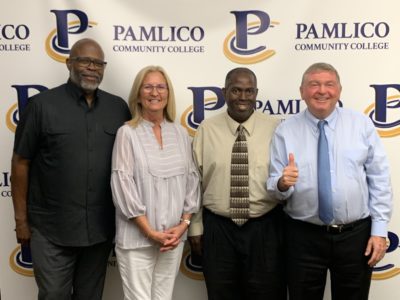
|
|
Author Simon Sinek writes that “our WHY is our purpose, cause or belief — the driving force behind everything we do.” Have you found your “why” in your workplace and community?
My why keeps me moving, proudly working in a field that grants me the opportunity to change lives. My why is to decrease poverty and reduce the prison recidivism rate in North Carolina and across the country.
My name is Greg Singleton, and I am the dean of workforce and continuing education programs at Central Carolina Community College in Sanford. In my role, I seek to ensure that quality and accessible education is available for all residents of Lee, Chatham, and Harnett counties.
Yes, you read that right, all. I truly believe that we are all capable of learning if placed in the right setting.
Since 2016, I’ve worked very hard to connect unemployed, underemployed, and formerly incarcerated people to employment through the tool of education. It is my belief that this often underserved population can and will improve our workforce. This population is the key to our growth in numerous areas of economic development. To focus on this group will improve public safety, create more taxpayers, and lower the collateral cost of incarceration.
Behind the benefits stemming from this work, my why comes from a “something has to be done about this” attitude. It is imperative that we include the justice-involved population in our conversations about workforce and education — as valued residents, students, and employees that have paid back their debt to society.
Reentry work
This is a population that can contribute greatly to today’s workforce and economic development. Would you believe that 34% of unemployed men in the U.S. have criminal records? That’s a lot of people.
My why is also personal. I am a justice-involved person myself. I was incarcerated in a federal prison from July 1992 to November 1996, as a first-time, nonviolent offender. When I was released, I found myself a part of that same unemployed group due to my criminal background. If not for grace, mercy, and opportunity, I could still be a part of those unemployed men. So today, my why is to help realize as many second chances for other people, too.
Each year, more than 22,000 people are released from the state’s prison system, and 98% of current inmates will be released in the future. But navigating life after prison is challenging, not only because of a criminal record. One also has to find housing, food, transportation, and jobs in a short period of time.
Consider that justice-involved person who returns from incarceration with a determined heart and mind to be a benefit to society. Imagine that person having plans to get a job and support their family. They may have plans or hopes to go back to school, but employment is often the first priority due to responsibilities like child support, rent, food, clothes, child care, transportation, mental health and or substance abuse treatment, probation/parole fees, and more.
Often, those heartfelt plans are derailed after submitting numerous job applications and learning that employers possess hiring policies and practices and implicit biases that limit options. In most cases, it doesn’t matter if the person is qualified or not. It also doesn’t matter if a person’s prior criminal offense poses no threat to the integrity of the company or institution … or harm to other people.
Such hiring policies create huge and life-changing barriers. According to a study by Prison Policy Initiative, formerly incarcerated people are unemployed at a rate of over 27% — higher than the total U.S. unemployment rate during any historical period, including the Great Depression. Without jobs, many people unfortunately end up back in prison. In addition, job shortages unnecessarily remain.
This is the reason I accept my why — this mission to reduce prison recidivism.
I didn’t always accept my why. This why was not the why that I wanted. I knew that in the eyes of society, the justice-involved are seen as a dirty cup that can’t be cleaned. If I accepted this mission, it would require exposing my personal life of incarceration that I had worked to hide from society. I would have to reveal a personal side of my life that did not reflect glamor, but great shame.
Over time, with obedience and self-discipline, I learned to accept my why. This work has awarded me with a host of accolades. But if something is truly your why, the accolades are not the motivation behind your work.
Though your why greatly involves you, your why is not all about you. Our why is about the uplifting and improvement of other people and situations. People in the field of education should understand this well.
Across the state’s community colleges, we believe that education can connect people to more meaningful, higher-paying opportunities. We also believe those opportunities are for the unemployed, underemployed, or people just searching for something different.
What about you?
Have you ever asked yourself about the why for your work? If not, I encourage you to. The why behind our work helps push us through roadblocks, frustration, and conflict.
As an educator, my goal is to help empower unemployed, underemployed, and formerly incarcerated people with the tool of education. When my workload is full, which is often, my why motivates me to keep going.
In January, Central Carolina Community College launched its first class under the Building Bridges program in partnership with the Food Bank of Central & Eastern N.C. That partnership provides paid tuition for forklift safety and operation and commercial drivers license training, a weekly allowance, and a weekly food box for student participation/completion. This program targets the unemployed, underemployed, or justice-involved population, and it’s one I’m very proud of.
One day before our first class graduated, one of the students came to my office and requested to speak with me. Once in my office he said, with eyes filled with water, “Sir, this class saved my life.”
I sat there motionless, wondering what type of trouble he was involved in. He told me he was previously turned down for a job because he didn’t know how to drive a forklift, and the company didn’t offer training. The student said he had considered turning to what he knew how to do: selling drugs. At the time, he got a call about the job-readiness bootcamp and forklift program. “Now, I can get that job and not sell drugs,” he told me.
I just sat there fighting back tears, because I knew exactly where he was coming from. The day of graduation he bravely shared that very story with the graduating class and program sponsors. This person’s life — and the lives of many others — can be changed for the better, when we find, accept, and execute our why.





